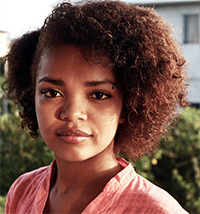LIKE many Guyanese and other nationalities around the world, the U.S elections brought things such as bigotry, racism and sexism into sharper focus for me.
Yes, I have seen some of these same traits among leaders in our country’, in cases such as Opposition Leader Bharrat Jagdeo with his Queens, New York speech; former PPP/C Information Liaison Kwame McCoy regarding allegations of child solicitation; and Minister of Social Protection, Volda Lawrence, comments of an alleged child rape case by labelling it as “a family matter”.
But I think we, as a people, (but I will speak for myself) tend to not realise the enormity of our own problems at home, until some seemingly progressive nations show us their problems. So I want to examine the concept of race relations here in Guyana, and the politics which surround it; because, above all else, the U.S. election taught me something about race that I never really saw before.
I like to call this phenomenon the “third dimension of racism”, or, as it is often succinctly put, “implicit bias”. To be clear (because many have a habit of misconstruing my words), I am not suggesting that racism was the sole reason behind the Trump win. I am not even suggesting that things such as homophobia and Islamophobia were behind it. While these things did add to it, largely, I believe his win was prompted by a people who were tired of the establishment they had; a people who were tired of political correctness, and who were tired of the little the Obama administration did for them.
THREE DIMENSIONS
This theory purports the idea that there are basically three dimensions to racism, with the first being active racism, which sees one not wanting to eat from the same plate as another ethnicity or tolerate their presence in the same room, and things like that.
The second would be those who know they are racist but try to tone this down in the presence of people; unless, of course, they are in the presence of other racist friends.
Then, finally, there is the third dimension in which the racism is so latent that persons do not even know it exists. It is not something they actively think about unless it is pointed out to them; and it is for this exact reason that I find third dimension persons more dangerous.
With the other two, one has something to work with — one is able to reason and challenge opposing viewpoints because we know their position. But with those twice removed, there is really nothing one can fight. Their racism has become so embedded into the fabric of their lives that while they can scoff at the idea of racists, they don’t see how opposing the marriage of a child to their partner, or how forming beliefs about someone based on ethnicity, constitutes racism.
The depth of this phenomenon was realised when, in trying to make sense of it all, I began reading dozens of articles and blog posts of those who would have voted for Trump. These persons were not what one thinks of when they think of a Trump supporter; they were intelligent people with strong, reasonable points.
It is one of the problems I think the U.S has, and it is definitely a problem Guyana has.
Those articles brought to mind a recent visit to No.1 Canal on the West Bank of Demerara. I was doing a research project, so in trying to get as much data as possible, I spoke to several people. The more people I talked to, however, a prevailing theme began to show itself. Let me be clear: These people were exceptionally nice; they offered fruits, drink and food, and were very conversational and open.
However, while it was not the focus of the research, the issue of race came up several times, to which they all seemed to proudly declare their neutrality; but in their careless speech, another truth was told.
ANOTHER TRUTH
Here were people who spent their entire lives in one place, and who, despite having interactions, formed no real bonds with people of other races. While they did not complain about a lot, they mentioned how the integration of races close by had managed to cause a breakdown in the social order of things in and around their community.
I could understand their concerns, even if those concerns were not necessarily rooted in fact, because I knew that they believed what they were saying was true, and it bothered them.
One of the problems I think we, particularly us liberals, have is painting everyone with the same brush. When someone has an opposing viewpoint, we are quick to label them as bigoted, transphobic or backward, without giving their views much thought. This, of course, does not solve anything; all it does is make us feel as if we are the only progressive ones out there, and it further alienates us from conservatives and those whose implicit biases are unknown to them.
Race is, in itself, a sensitive topic; and given its sensitivity, many do not want to address it, due to the fear they may unintentionally offend some group or the other.
As I look back at that now, I wonder what my implicit biases are, and how I can even begin to change something that I have become conditioned to believe but not recognise. I wonder how it is that one can even begin to challenge long-held notions of race relations and beliefs that are stereotypical and oppressive without throwing the blanket term of racism out there; because often this just stilts the conversation when what we need is dialogue.




.png)








